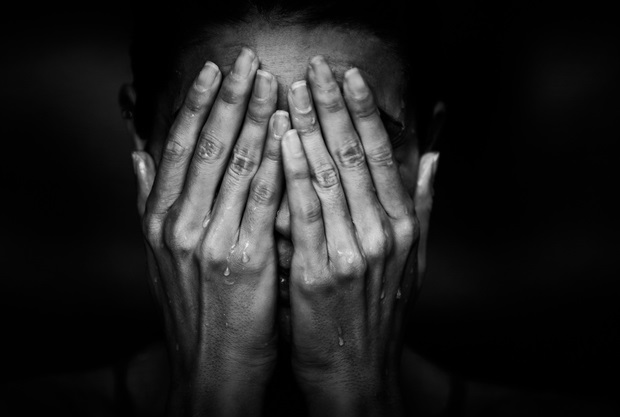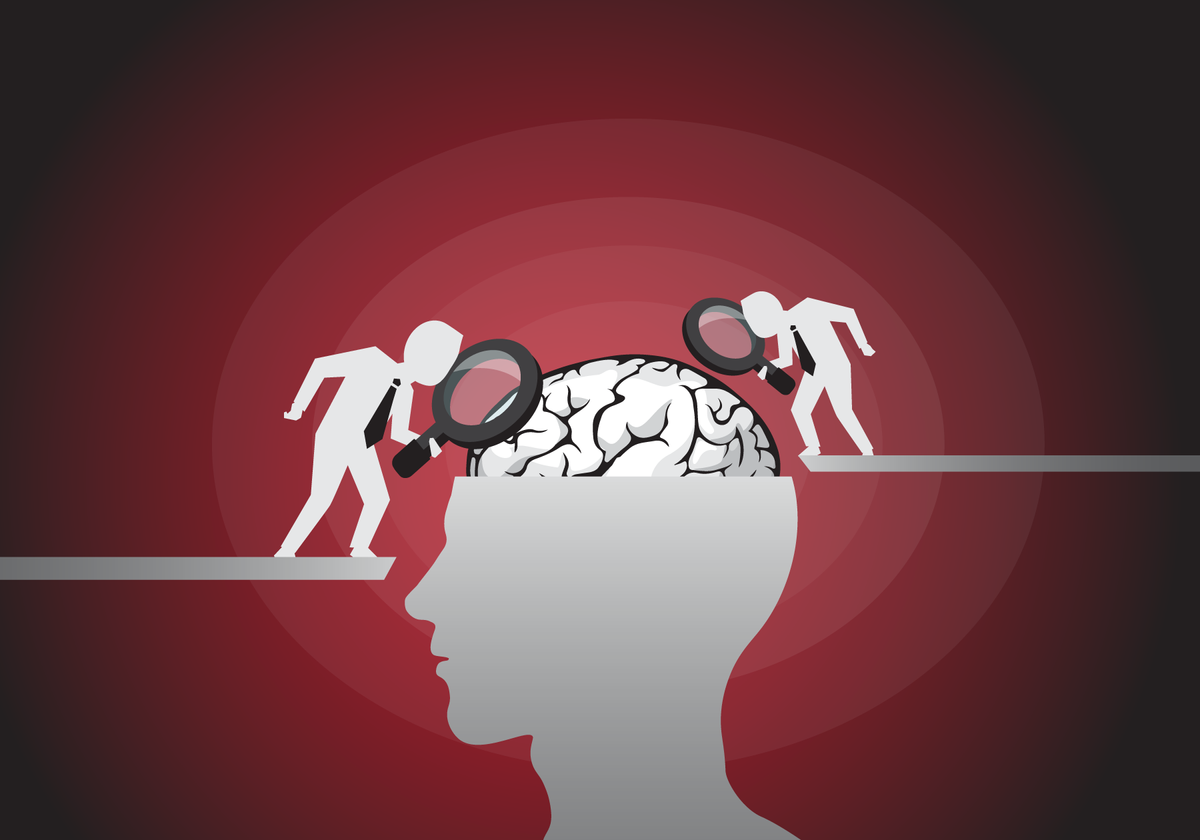It’s not a topic that is often talked about, but homicidal thoughts are something that a lot of people experience at some point in their lives. In this blog post, we will discuss what homicidal thoughts are, what causes them, and how to deal with them. If you have ever had any thoughts of harming another person, it is important to seek help from a professional. There is no shame in admitting that you need help; in fact, it takes courage to face your fears and get the help that you need. We hope that this blog post will provide some insight into homicidal thoughts and will help you get the support that you need.
Contents
What Are Homicidal Thoughts?
 Homicide is defined as the “act of killing another human being.” Thoughts of homicide are simply thoughts about killing another person. These thoughts can range from fleeting, passing thoughts to persistent, intrusive thoughts that feel impossible to get rid of. They can be accompanied by a detailed plan or fantasy about how one would go about committing the act. In some cases, people with homicidal thoughts might also have access to the means to carry out their plans.
Homicide is defined as the “act of killing another human being.” Thoughts of homicide are simply thoughts about killing another person. These thoughts can range from fleeting, passing thoughts to persistent, intrusive thoughts that feel impossible to get rid of. They can be accompanied by a detailed plan or fantasy about how one would go about committing the act. In some cases, people with homicidal thoughts might also have access to the means to carry out their plans.
Most people have had dark or violent thoughts at some point in their lives without acting on several only when these thoughts become frequent, intense, and disruptive that they may be indicative of a more serious problem. If you’re having homicidal thoughts, it’s important to seek professional help. With treatment, it’s possible to manage and reduce these thoughts.
Several warning signs may indicate someone is having these thoughts. These can include:
- Thinking about death or homicide frequently
- Making comments about wanting to hurt or kill others
- Expressing feelings of hopelessness or despair
- Withdrawing from friends and family
- Increasing use of drugs or alcohol
- Experiencing changes in sleep patterns
- exhibiting sudden changes in mood or behavior
What Causes Homicidal Thoughts?

There are many neurological and psychological changes occur to a combination of factors, including:
Trauma
Trauma is a major risk factor for developing homicidal thoughts. A history of abuse, neglect, or exposure to violence can increase the likelihood of having these thoughts. Many neurological and psychological changes occur after someone experiences trauma. These changes can make it more difficult to regulate emotions, cope with stress, and make safe and healthy decisions.
Mental illness
These thoughts are also common in people who have a mental illness. Mental illnesses like schizophrenia, bipolar disorder, and major depressive disorder can all increase the risk of having homicidal thoughts. In some cases, people with mental illness might also hear voices that tell them to hurt or kill other people.
Substance abuse
People who misuse drugs or alcohol are also at a higher risk for developing these thoughts. This is because substances can change the way the brain functions and makes it harder to control impulses and make sound decisions. Additionally, people who abuse substances are more likely to be involved in violence.
Isolation and loneliness
People who feel isolated and alone are also at a higher risk for these thoughts. This is because isolation can lead to feelings of hopelessness, despair, and worthlessness. When combined with other risk factors, such as mental illness or substance abuse, isolation can increase the likely many different factors contributing to it
Personality disorders are also linked with these thoughts. Borderline personality disorder, antisocial personality disorder, and narcissistic personality disorder are all associated with an increased risk of homicide. Sometimes many different factors contribute to homicidal thoughts, and other times there is no clear cause.
Negative Impacts of Homicidal Thoughts

There are many negative impacts of homicidal thoughts. For example, homicidal thoughts can lead to:
Relationship Problems
Relationship problems are common in people with homicidal thoughts. This is because these thoughts can make it difficult to trust other people and feel safe in relationships. Additionally, homicidal thoughts can lead to outbursts of anger or violence, which can damage relationships.
Problems at work
These thoughts can also interfere with work. For example, someone might have difficulty concentrating on their work or miss days of work because they’re too anxious or depressed to leave the house. Additionally, these thoughts can sometimes lead to workplace violence.
Legal problems
Homicidal thoughts can also lead to legal problems. For example, someone might get arrested for making threats or getting into fights. Additionally, if someone acts on their homicidal thoughts and hurts or kills someone, they can be charged with a crime. There are also many negative impacts of these thoughts on a person’s mental health.
Constant worry and anxiety
Homicidal thoughts can cause a person to feel constant worry and anxiety. This is because they might be afraid of acting on their thoughts or worry that other people will find out about their thoughts. Additionally, homicidal thoughts can lead to insomnia, which can further increase anxiety levels.
Depression
These thoughts can also cause depression. This is because they can make a person feel hopeless, helpless, and alone. Additionally, homicidal thoughts can interfere with a person’s ability to function in their everyday life, which can lead to feelings of isolation and despair. Sometimes there may be no clear cause for these thoughts, but there are several risk factors that can increase a person’s likelihood of having them.
Self-Harm
Another negative impact of these thoughts is self-harm. People with homicidal thoughts might hurt themselves as a way to release their feelings of anger and pain. Additionally, self-harm can be a way for people to feel in control when they feel like their life is spiraling out of control. Also, there may be many negative impacts on a person’s mental health because of homicidal thoughts.
How To Treat Homicidal Thoughts?

You may think that having homicidal thoughts means that you are a bad person. However, it is important to remember that everyone has thoughts like this from time to time. If you are experiencing homicidal thoughts, it is important to seek help from a mental health professional. These are some of the ways to treat homicidal thoughts:
Medications
There are a variety of different medications that can be used to treat homicidal thoughts. Some of these medications include antidepressants, anti-anxiety medications, mood stabilizers, and antipsychotic medications. Medications can be very effective in treating homicidal thoughts, but it is important to work with a mental health professional to determine which medication is right for you.
Therapy
If you’re experiencing homicidal thoughts, it’s important to seek professional help. Therapy can be an effective treatment for homicidal thoughts and can help you understand and manage your thoughts Many types of therapy can tell your therapist about your thoughts so they can help you address them. If you’re not in the rising an appointment with a mental health professional.
Many types of therapy can help to address these thoughts.
Cognitive behavioral therapy (CBT) is one type of therapy that is effective in addressing your thoughts and feelings and developing healthy coping mechanisms for dealing with them. Other types of therapy, such as interpersonal therapy (IPT), can also help address homicidal thoughts.
Self-Care
 If you find yourself having homicidal thoughts, it’s important to seek professional help immediately. In the meantime, there are some self-care measures you can take to help manage your thoughts and feelings.
If you find yourself having homicidal thoughts, it’s important to seek professional help immediately. In the meantime, there are some self-care measures you can take to help manage your thoughts and feelings.
First and foremost, make sure to take care of yourself physically. Eat a nutritious diet, exercise regularly, and get plenty of rest. These things will help to reduce stress and improve your overall mood.
It’s also important to find healthy ways to cope with stress and difficult emotions. Some people find journaling or talk therapy helpful. Others find solace in nature or creative pursuits like painting or writing. Find what works for you and make time for it every day.
And finally, be sure to surround yourself with supportive people who love and care about you. Lean on them for help when you’re feeling overwhelmed. They can provide a listening ear, a shoulder to cry on, or just a much-needed distraction from your troubling thoughts.
How To Prevent Homicidal Thoughts?

If you’re someone who has ever experienced homicidal thoughts, then you know how scary and overwhelming they can be. But the good news is that there are things you can do to prevent them. These are some of the ways you can prevent these thoughts:
Identify Triggers
If you’re struggling with homicidal thoughts, it’s important to identify what triggers them. Once you know what sets off your thoughts, you can begin to develop a plan to avoid or cope with those triggers. Here are some common triggers for homicidal thoughts:
– Feeling like you’re a burden to others
– Experiencing extreme financial stress
– Going through a major life change, such as a divorce or the death of a loved one
– Having a history of violence or abuse
– Suffering from mental illness, such as depression, anxiety, or schizophrenia
If you can identify your triggers, it will be easier to develop a plan to prevent these thoughts. If you’re not sure what triggers your thoughts, consider talking to a therapist or counselor who can help you identify and deal with them.
Educate Yourself About It
If you or someone you know is struggling with these thoughts, it’s important to educate yourself about the issue. There are many resources available that can help you understand what may be causing these thoughts, and how to deal with them. Reading articles, books, or blogs about any people has a way to learn more. You can also talk to a therapist or counselor who can provide guidance and support.
If you are struggling with homicidal thoughts, remember that you are not alone. Many people have gone through similar experiences. Reach out for help from friends, family, or professionals if you need it. With the right support, you can overcome these thoughts and live a happy and healthy life.
Talk To Professionals
If you or someone you know is struggling with homicidal thoughts, it’s important to talk to a professional. There are many resources available to help those who are struggling with mental health issues. If you or someone you know is in danger of harming themselves or others, please seek help immediately.
Make Time For Yourself
It’s important to make time for yourself, even if you’re feeling overwhelmed or down. Taking care of yourself is crucial to maintaining your mental health and preventing homicidal thoughts. Spend time doing things that make you happy, whether it’s reading, going for walks, listening to music, or spending time with friends and family. Avoid alcohol and drugs, which can worsen your mood and make you more likely to act on violent impulses. If you’re feeling suicidal, don’t hesitate to reach out for help.
Helping Someone With Homicidal Thoughts

If you are worried about someone you know harming themselves or others, it is important to get help. These are the ways how you can help someone who is suffering from homicidal thoughts:
Listen To Them
If you know someone who is struggling with these thoughts, the best thing you can do is to listen to them. Let them know that you are there for them and that they can talk to you about anything. It’s important to create a safe and non-judgmental space for them to express their thoughts and feelings. If they feel like they can’t talk to you, they may not seek help elsewhere.
Be Patient
If you or someone you know is struggling with these thoughts, it’s important to be patient. This is a difficult time for the person and they may not be able to express what they’re going through clearly. It’s also important to remember that homicidal thoughts are usually a symptom of a larger problem, so don’t try to fix the issue on your own. If you’re concerned about someone, reach out to a mental health professional or crisis line for help.
Encourage Treatment
If someone is having homicidal thoughts, it’s important to encourage them to seek professional help. While it may be difficult to talk about, it’s important to let the person know that they are not alone and that there is help available. Treatment can be very effective in helping someone manage their thoughts and emotions.
Give Them Space
If someone you know is struggling with homicidal thoughts, it’s important to give them space. It can be tempting to try to fix the problem or talk them out of their thoughts, but it’s important to respect their privacy and let them know that you’re there for them. Let them know that they can come to you when they’re ready to talk, and in the meantime, try to provide support in other ways. If they’re comfortable with it, you could offer to help with day-to-day tasks or simply spend time with them in a non-judgmental way. Whatever you do, make sure not to push them into talking about their thoughts if they’re not ready. Remember that this is their journey and they need to find their way through it.
Conclusion
In conclusion, It is important to understand that homicidal thoughts are not necessarily indicative of mental illness. Mental illness is only one possible cause of homicidal thoughts. There are many possible causes of homicidal thoughts, and each should be evaluated on a case-by-case basis. Treatment for homicidal thoughts should be tailored to the individual and the underlying cause. If you or someone you know is having homicidal thoughts, it is important to seek professional help.
If you or someone you know is looking for affordable, effective, and confidential OCD or homicidal thoughts treatment, you can consider contacting Therapy Mantra. We have a team of expert therapists who can help you to overcome your OCD and live a life that is free from anxiety and fear. Contact us today to book an online therapy session or download our free OCD treatment app on Android or iOS for more information.


